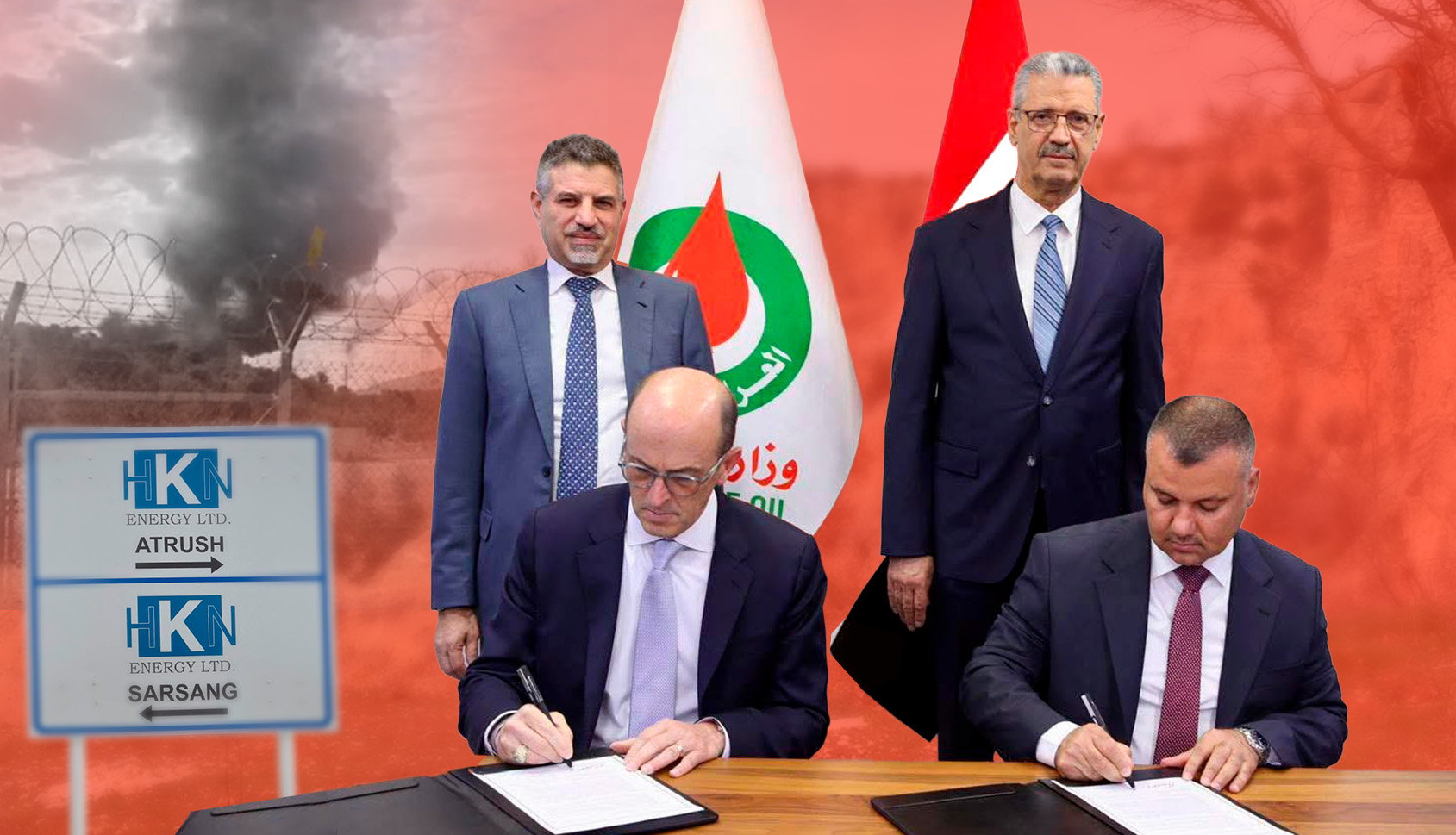On the morning of July 15, 2025, the Sarsang oil field was attacked by a drone. The American company HKN, which operates the field and owns 62% of its shares, is the main stakeholder. On the same day, just hours later, the Iraqi Ministry of Oil officially announced the signing ceremony of the contract between HKN and the North Oil Company for the development of the Hamrin oil field, with a daily production capacity of 60,000 barrels of oil and 45 to 50 million cubic feet of gas.
HKN announced on X: “The attack caused no casualties, but total production, which is 30,000 barrels of oil per day, has been halted until all assessments of the situation are completed.”
Drone attacks have become alarmingly routine in the Kurdistan Region. Just last night, two drones struck Khurmala, adding to a series of previous drone and missile attacks that have targeted both civilian areas and political security sites across the region. Notably, the recent targeting of the Sarsang field coincided with the presence of Matthew Zais, Deputy Director of HKN Energy, at the Iraqi Ministry of Oil, where he was working on finalizing a new contract for the company.
Whatever the dimensions of these attacks may be, they highlight the weakness of the state and the dominance of political forces, as well as both legal and illegal groups in Iraq. These groups send three important signals through the attack on Sarsang.
First, from a technical and security perspective, the attack demonstrates the superiority of the aggressor. Second, from an economic standpoint, the objective appears to be the reduction of the Kurdistan Region's oil production capacity and disruption of its current sales method. Third—and perhaps most importantly—there is a political dimension that may be the primary motive behind the attack: to serve as a warning for the U.S. not to penalize SOMO for its oil sales.
In recent days, following former President Trump's letter to the Iraqi Prime Minister regarding the imposition of a 30% tariff on Iraqi goods starting August 1, 2025, there have also been indications that the United States has warned Iraq about the sale of Iranian oil. On July 3, the U.S. Department of the Treasury added several individuals and companies to its sanctions list for selling Iranian oil under the guise of Iraqi oil. Previously, Iraq’s Oil Minister, Hayan Abdul-Ghani, stated that “Iran uses Iraqi documents to sell its oil.” This statement helps explain the longstanding discrepancy between the revenue data reported by Iraq's Oil Ministry and that of the Finance Ministry. Iran’s total oil production is also higher than Iraq’s. According to Energy data for 2024, Iran’s daily oil production was 5.062 million barrels, while Iraq produced 4.398 million barrels per day. This means that, in terms of annual production growth, Iran increased its output by 10.6%, whereas Iraq’s production rose by only 1%.
Within the borders of Duhok province, there are several other oil fields where international companies—particularly British, Norwegian, and Canadian—are operating as production partners. These include the Tawke, Peshkabir, Sheikhān, and Bashiqa oil fields, which are geographically more accessible and, in some cases, even closer than Sarsang, if the sole objective of the attackers had been economic disruption or security destabilization. However, the selection of Sarsang as the target appears clearly intentional. These attacks underscore the complexity of Iraq’s political system and the capabilities of various armed actors within it.
Currently, oil production in the Kurdistan Region ranges between 280,000 and 300,000 barrels per day. However, as of the morning of Tuesday, July 15, 2025, production dropped by nearly 30,000 barrels. According to the Iraqi Oil Minister, the remaining disagreement between Erbil and Baghdad over resuming oil exports through the Ceyhan port in Turkey amounts to a gap of just 19,000 barrels.
We should not overlook the fact that the timing and targeting of the Sarsang field demonstrate the advanced and sophisticated capabilities of the attacking side from all angles. This poses a serious threat that must not be forgotten, especially if a new agreement comes into effect.
Another important reality is that targeting the HKN Company effectively means targeting the lobbying power of international oil companies within the U.S. Congress and administration. Much of the U.S. administration’s statements and exerting pressure on Erbil and Baghdad to resume Kurdistan’s oil exports via pipelines—and to reach a new agreement—was driven by the interests tied to this company.
Finally, while it is true that the attack took place and the agreement was signed, several critical questions remain unanswered.
First, if the US Treasury Department threatens to sanction SOMO, should the illegal groups in Iraq target part of the Iraqi state's territory and demand its surrender along with its revenues?
Second, is there division among the current rulers of the state administration in managing files, or are official institutions one thing and what actually happens another thing?
Third, does the signing of HKN Company’s contract with the Iraqi Ministry of Oil put an end to the repeated stories of unconstitutional and illegal contracts with the Kurdistan Region?
Fourth, why did Iraq choose the HKN Company from among dozens of major American oil companies at this stage? What connection does this have to lobbying?
Fifth, what will be the response of the US administration to harming American companies and investors?

